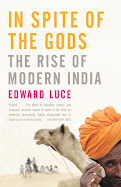The combination of inadequate legitimating procedures and lack of qualitative deliberations makes it unlikely that WTO outcomes will be just in the middle of power politics, exclusion, bargaining, and uncritical knowledge. The consensus reached in this multilateral sphere is most likely to be coerced and one-sided- to the advantage of the western countries. Proponents for the Quad contest that other member states form alliances, however the latter are used to represent common socio-economic interests between geographically neighboring states, while the Quad is simply a coalition of the most economically developed member states, which for a lack of transparency, lead us to believe that it is for the purpose of hegemony. The group should either state its primary purpose for formation and adhere to the highest standards of transparency, or be dissolved.
In a lecture to the UN Audiovisual Library of International Law on 15 June 2008, Director-General Pascal Lamy stated that a decade ago, the Quad may have been a core group used for the purposed of testing new rules first, however, the major group today is the G-4, comprised of the US, EC, India and Brazil. Despite declaring the current membership of the major group, the director-general still does not shed light on what the designation means, rather he states that it is, "not possible to propose any new rule without testing the waters with countries like China , South Africa, and Indonesia, just to name a few" (Kapoor 530).
Fairness is of immense importance because of the diverse interests of nations-states and the various comparative advantages that they have in fields affected by the WTO such as technology, investment, and education .Developing countries, budgeted on extremely low appropriations often cannot afford to host as many representatives as other developed countries in Geneva or any other locations where WTO representatives may need to be permanently situated. This affects the representation of the respective nation-state at meetings and within the organization in general. The absence of any nation's representatives further reduces any chance that the interests of that nation are considered at the brainstorming or negotiation procedures. Representatives from developing countries may also have less extensive education, yet have to collaborate with lawyers and other professionals from developing countries who have more extensive education. Professionals in developing countries, especially from the Quad also have the advantage of being trained and being familiar with the business lexicon and processes of meetings. While these differences may seem subtle, variances in education and a home court advantage can have a tremendous effect on the negotiation process and ultimately, the trade policies implemented by a state.
Works Cited
Albin, Cecilia. "Using Negotiation to promote legitimacy; an assessment of proposals for reforming the WTO." International Affairs 84.4 (2008): 757-75. Print.








No comments:
Post a Comment